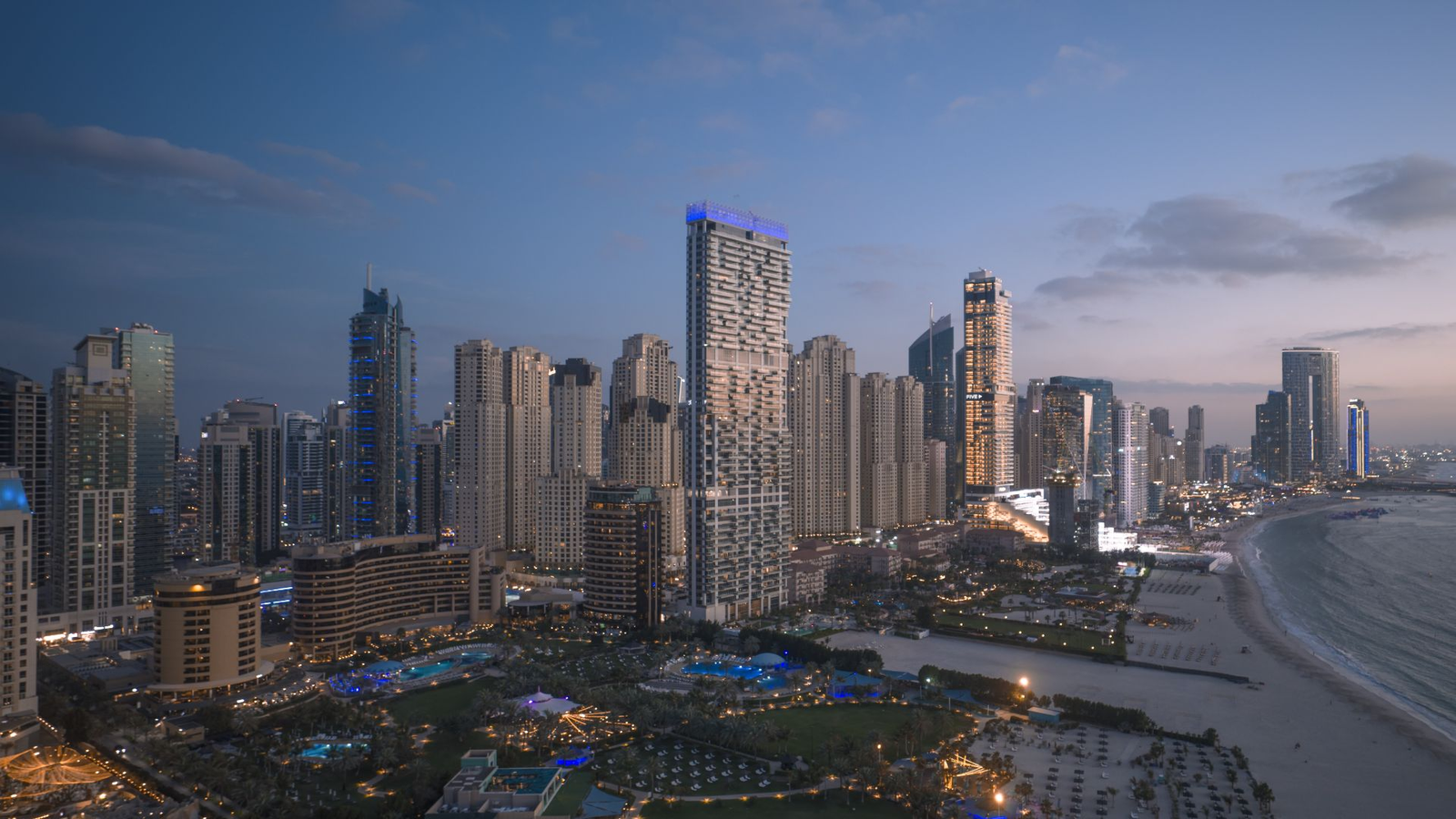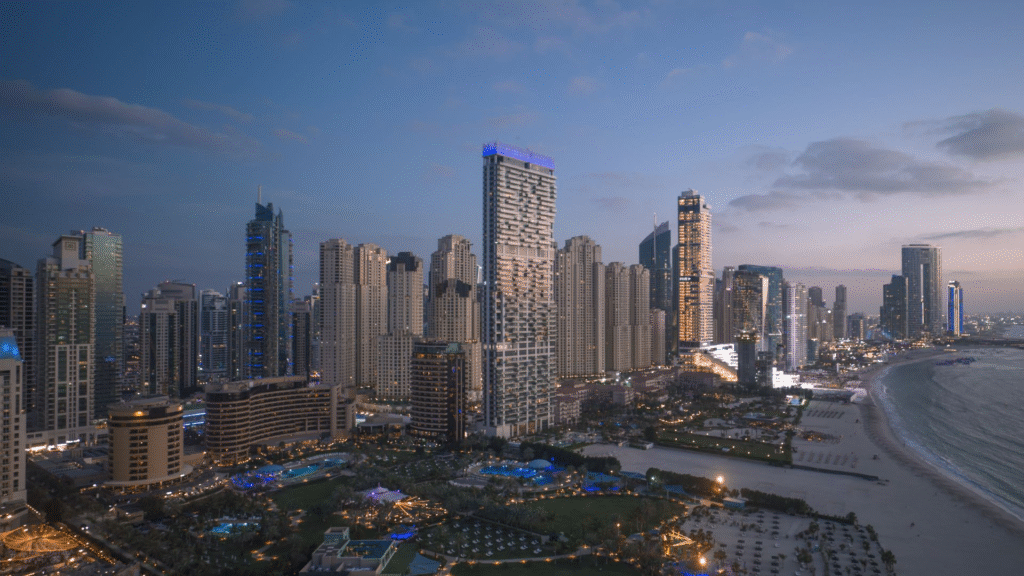
Capital Gains: Dubai’s real estate market in 2025 is a global powerhouse, attracting investors with its tax-efficient structure and high returns. With 99,000 transactions worth AED 326.7 billion in H1 2025 and a projected 5-9% price increase, the city offers 6-10% rental yields and 8-15% capital gains in prime zones like Jumeirah Village Circle and Dubai Marina.
A key draw is the absence of personal income tax, capital gains tax, and VAT on residential leases or first sales. Qualifying Free Zone Persons (QFZPs) in Jebel Ali Free Zone enjoy 0% corporate tax on qualifying income, provided non-qualifying mainland income stays below 5% or AED 5 million, and SMEs dodge the Domestic Minimum Top-up Tax (DMTT).
Despite this, myths about capital gains tax (CGT) persist, fueled by misinformation and confusion with other jurisdictions. Below, we debunk six common CGT myths to empower investors with clarity, ensuring tax-smart decisions in Dubai’s thriving market.
Many investors fear a hidden CGT lurks in Dubai’s tax-free facade. The truth? Dubai imposes no CGT on property sales for individuals, whether residents or non-residents. If you buy an apartment in Downtown Dubai for AED 1.5 million and sell it for AED 2 million, the AED 500,000 profit is yours, tax-free. This applies to primary residences, investment properties, or off-plan flips.
Corporate entities, unless registered as QFZPs, may face a 9% corporate tax on profits, but individual investors are exempt. The Dubai Land Department (DLD) confirms this in its 2025 guidelines, ensuring transparency. To avoid surprises, verify your investment structure (individual vs. corporate) and consult a tax advisor for complex portfolios.

A common misconception is that Dubai levies CGT if you hold a property beyond a specific period, like three or five years. This myth stems from jurisdictions like the UK, where holding periods affect tax rates. In Dubai, no such rule exists. Whether you sell a villa in Dubai Hills Estate after six months or six years, your capital gains remain 0% taxable for individuals.
For example, a AED 2.5 million villa sold for AED 3.5 million after a decade yields a AED 1 million tax-free profit. The only cost is the 4% DLD transfer fee, often split with the buyer. Always check for developer-specific resale restrictions in off-plan contracts to avoid penalties, but CGT is not a concern.
Some believe non-resident investors face CGT in Dubai, unlike UAE residents. This is false. Dubai’s tax policy makes no distinction between residents and non-residents for individual property sales. A UK-based investor selling a AED 1 million JVC apartment for AED 1.3 million keeps the AED 300,000 gain tax-free in Dubai, just like a UAE resident. However, your home country may impose CGT.
For instance, U.S. investors report gains on IRS Form 1040, potentially facing 0-20% federal CGT, offset by the U.S.-UAE Double Taxation Agreement via Form 1118. To mitigate, use a UAE-based entity or consult a tax advisor to leverage exemptions like the $130,000 Foreign Earned Income Exclusion, noting it doesn’t apply to passive gains.
Investors often mistake the 4% DLD transfer fee or other charges for a disguised CGT. The DLD fee, paid on property transfers (e.g., AED 80,000 on a AED 2 million sale), is a transaction cost, not a tax on profits. Similarly, the 2% agency commission (plus 5% VAT) and AED 6,000-10,000 conveyancing fees are service charges, unrelated to your capital gain.
For a AED 1 million Business Bay apartment sold at AED 1.2 million, the AED 200,000 profit is tax-free, but you’ll pay AED 40,000 DLD and AED 21,000 commission. These fees, totaling 6-8% of the sale price, are predictable and separate from CGT. Budget for them upfront and negotiate splits with buyers to reduce costs.
The myth that frequent property flipping buying and selling quickly for profit triggers CGT in Dubai is widespread, especially among off-plan investors. In reality, Dubai imposes no CGT on flipping, regardless of frequency. An investor buying an off-plan unit in Damac Lagoons for AED 2 million and selling it for AED 2.5 million pre-completion keeps the AED 500,000 gain tax-free.
However, if flipping is deemed a “business activity” by UAE authorities, corporate tax (9%) may apply unless structured as a QFZP in a free zone like Jebel Ali. In 2024, off-plan sales hit 60% of Dubai’s 99,000 transactions, per DLD data, with no CGT penalties. To stay compliant, limit flips to personal investments or use a QFZP entity, and check developer resale terms.
Rumors of an impending CGT introduction in Dubai circulate, fueled by global tax trends and the UAE’s 9% corporate tax rollout in 2023. However, no credible plans exist for a personal CGT in 2025, as confirmed by UAE Ministry of Finance statements. Dubai’s tax-free status is a core pillar of its Economic Agenda D33, aiming to attract 25 million tourists and grow the 3.91 million population in 2025.
Introducing CGT would deter investors, who drove AED 23.4 billion in sales in zones like Dubai Hills Estate in 2024. While corporate tax applies to non-QFZP businesses, individuals remain exempt. Stay vigilant for policy updates, but for now, enjoy Dubai’s 0% CGT on property gains.
These myths hidden CGT, holding period taxes, non-resident penalties, fee confusion, flipping taxes, and future CGT fears can deter investors from capitalizing on Dubai’s 6-10% yields and 8-15% capital gains. Zones like JVC (7.25% ROI) and Dubai South (28% rental growth in 2024) thrive on tax-free profits, but misinformation clouds decisions.
Hidden fees like 4% DLD, 2% commission, and AED 10-30/sq.ft. service charges add 6-8% to costs, not taxes. The First-Time Home Buyer Programme’s 5% discounts and Golden Visa for AED 2 million+ investments, registered via the Dubai REST app, enhance affordability. RERA escrow accounts and 90-95% occupancy rates ensure stability, despite risks like oversupply (76,000 units in 2025).
Maximize returns by holding properties as individuals to avoid 9% corporate tax, or use a QFZP in Jebel Ali Free Zone for 0% corporate tax. Offshore entities via DIFC or RAK ICC can bypass 9% rental tax. Claim 30-50% R&D credits for eco-tech like solar panels. U.S. investors should report gains on IRS Form 1040, using Form 1118 for tax credits under the U.S.-UAE Double Taxation Agreement; the $130,000 Foreign Earned Income Exclusion doesn’t cover passive gains, so consult a tax advisor.
Muslim investors account for 2.5% Zakat on rental income (e.g., AED 2,500 on AED 100,000). Budget for DLD fees and negotiate splits to preserve tax-free gains.
Dubai’s 6.2% GDP growth, Metro Blue Line expansion, and Al Maktoum Airport upgrades fuel demand in 2025. With 25 million tourists and a 5% population rise, zones like Downtown Dubai and Damac Lagoons offer 10-15% capital gains. Challenges like construction delays are mitigated by RERA protections and high absorption rates. A 4% DLD fee and AED 2,000-4,000 registration costs are offset by 5-20% developer discounts. By debunking CGT myths, investors can confidently navigate Dubai’s tax-free market for maximum ROI.
Dubai imposes no capital gains tax for individuals, debunking myths of hidden taxes, holding period penalties, non-resident charges, fee confusion, flipping taxes, and imminent CGT introduction. With 6-10% yields, 8-15% capital gains, and tax-free profits, Dubai’s real estate in 2025 offers unmatched opportunities. By understanding true costs and optimizing with QFZP structures or R&D credits, investors can secure tax-smart wealth in a global real estate leader.
read more: Dubai Real Estate: 5 Golden Visa Projects Offering Tax Benefits
